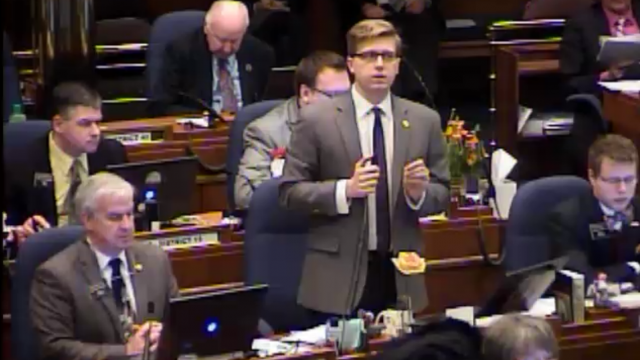Democrats Fight To Keep ND Gun Laws Complicated: "Bullets Don't Discriminate"

Democrats weren’t too enthused with it, but it passed on a largely party-line vote 67-26.
HB1450 as amended would make a number of changes to the state’s gun laws:
- It expands the definition of “dangerous weapon” to include tasers, though not stun guns
- It creates a uniform definition for unloaded rifles and handguns (previously they were different causing confusion)
- It allows for concealed carry in liquor stores but not bars, since liquor stores aren’t serving alcohol
- It expands the right of employees to have a gun in their cars to include university system employees
- It clarifies that both Class 1 and Class 2 concealed carry permits are equally valid
- It expands carry rights to state owned property like public parks and rest areas
The provisions addressing parks and the universities drew the most ire from Democrats.
Rep. Corey Mock (D-Grand Forks) suggested that the law would remove local control over concealed carry in city parks, which currently resides with the city. He said the state may not “understand the nuances” of these parks, since some are located near schools and “bullets don’t discriminate.”
“I believe this is a bridge too far,” he said. Later in the floor debate Rep. Kim Koppelman (R-West Fargo) stood to point out that no city government or park district had testified against the bill.
Rep. Todd Porter (R-Mandan) also responded to Mock’s assertion that this would make parks more dangerous. “These are the restrictions on the good guys,” he said. “The bad guys don’t care about the restrictions.”
Rep. Kylie Oversen (D-Grand Forks) also questioned Koppelman on the provision addressing university system employees. During the 2013 session there was a debate over a law prohibiting employers from banning guns from employees cars. That law passed, and currently all employees may legally carry guns in their cars even if their car is on their employer’s property, but the one exception to this is university system employees. Koppelman’s bill ends that exemption.




